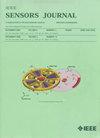基于神经网络和移动性预测的水下节点混合定位算法
IF 4.3
2区 综合性期刊
Q1 ENGINEERING, ELECTRICAL & ELECTRONIC
引用次数: 0
摘要
由于恶劣的海洋环境,精确的节点定位已成为水下无线传感器网络(UWSN)面临的巨大挑战,因为定位过程中可能会产生各种误差(如测距误差)。因此,针对 UWSNs 提出了许多定位算法(又称定位算法),但由于在考虑异构误差时难以进行复杂的系统建模,大多数算法在精度上都存在局限性。在本文中,我们提出了一种基于卷积神经网络(CNN)和移动性预测(HLCM)的混合定位算法,同时考虑了定位中的各种误差。与以往的定位算法不同,本文提出的 HLCM 算法训练基于 CNN 的定位模型,建立水下环境因素、锚节点和普通节点之间的位置关系,旨在缓解声速变化带来的不确定性,减少测距过程中的各种误差,从而提高定位精度。此外,所提出的 HLCM 算法在定位过程中考虑了洋流引起的节点漂移,通过锚节点速度的加权叠加来预测普通节点速度,有助于补偿定位过程中产生的位置偏差。仿真结果和对比分析表明,所提出的算法定位精度高,定位范围广,容错能力强。本文章由计算机程序翻译,如有差异,请以英文原文为准。
A Hybrid Localization Algorithm for Underwater Nodes Based on Neural Network and Mobility Prediction
Due to the harsh marine environment, precise node positioning has become a great challenge for underwater wireless sensor networks (UWSNs), as various errors (e.g., ranging errors) may be induced in positioning. Thus, many localization algorithms (a.k.a. positioning algorithms) have been proposed for UWSNs, but most of them exhibit limitations in accuracy due to the difficulty of complicated system modeling when considering heterogeneous errors. In this article, we propose a hybrid localization algorithm based on convolutional neural network (CNN) and mobility prediction (HLCM) when considering various kinds of errors in positioning. Different from previous location algorithms, the proposed HLCM algorithm trains a CNN-based localization model to establish the positional relationship among underwater environmental factors, anchor nodes, and ordinary nodes, which aims to alleviate the uncertainties caused by variable sound speed, with reduced various errors in the ranging process, and thus enhance localization accuracy. Besides, the proposed HLCM algorithm considers the node drifting induced by the ocean current during its positioning and predicts ordinary nodes speeds via weighted superposition of anchor nodes speeds, which helps compensate for the positional deviation generated in positioning. The simulation results and comparative analysis indicate that the proposed algorithm obtains high localization accuracy and extensive localization coverage with high fault tolerance.
求助全文
通过发布文献求助,成功后即可免费获取论文全文。
去求助
来源期刊

IEEE Sensors Journal
工程技术-工程:电子与电气
CiteScore
7.70
自引率
14.00%
发文量
2058
审稿时长
5.2 months
期刊介绍:
The fields of interest of the IEEE Sensors Journal are the theory, design , fabrication, manufacturing and applications of devices for sensing and transducing physical, chemical and biological phenomena, with emphasis on the electronics and physics aspect of sensors and integrated sensors-actuators. IEEE Sensors Journal deals with the following:
-Sensor Phenomenology, Modelling, and Evaluation
-Sensor Materials, Processing, and Fabrication
-Chemical and Gas Sensors
-Microfluidics and Biosensors
-Optical Sensors
-Physical Sensors: Temperature, Mechanical, Magnetic, and others
-Acoustic and Ultrasonic Sensors
-Sensor Packaging
-Sensor Networks
-Sensor Applications
-Sensor Systems: Signals, Processing, and Interfaces
-Actuators and Sensor Power Systems
-Sensor Signal Processing for high precision and stability (amplification, filtering, linearization, modulation/demodulation) and under harsh conditions (EMC, radiation, humidity, temperature); energy consumption/harvesting
-Sensor Data Processing (soft computing with sensor data, e.g., pattern recognition, machine learning, evolutionary computation; sensor data fusion, processing of wave e.g., electromagnetic and acoustic; and non-wave, e.g., chemical, gravity, particle, thermal, radiative and non-radiative sensor data, detection, estimation and classification based on sensor data)
-Sensors in Industrial Practice
 求助内容:
求助内容: 应助结果提醒方式:
应助结果提醒方式:


